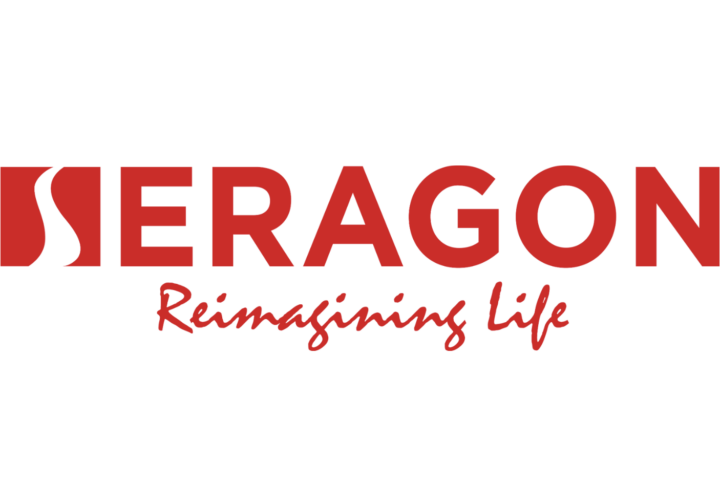In today’s fast-paced world, stress is something we all encounter. According to a recent survey conducted by the American Psychiatric Association, almost two out of five Americans rated their mental health as only fair or poor, citing high levels of stress as one of the major causes for this dissatisfaction. While there are many ways to manage stress, one natural approach that has been gaining popularity is through the use of adaptogens. But what exactly are adaptogens, and how do they help?
What are Adaptogens?
Adaptogens are a unique class of synthetic or plant-based compounds. Different from nutrients like vitamins and minerals, adaptogens are not required in the diet, so not eating them won’t lead to a deficiency of any kind. But consuming adaptogens is believed to have therapeutic benefits specifically in helping the body resist stressors of all kinds, whether physical, chemical, or biological. Many of these compounds are isolated from herbs and have been used for centuries in Chinese and Ayurvedic healing traditions.
How Do They Work?
Some scientists believe adaptogens can “enhance the resistance of the human body under a wide range of external circumstances.” Essentially, they may play a role in helping to make the body and/or mind more resilient during times of stress. They’re believed to help stabilize physiological processes and promote homeostasis, a state of balance. Recent research has shown that adaptogens can help combat fatigue, boost cognitive function, and even alter mood in a positive way.
Different Kinds of Adaptogens
- Ashwagandha: Often called Indian ginseng, it’s known for its restorative and rejuvenating benefits. It’s said to help reduce anxiety and stress, improve focus, and boost stamina.
- Rhodiola Rosea: This plant is famous for improving energy, endurance, strength, and mental capacity. It’s also used as an adaptogen to help the body adapt to and resist physical, chemical, and environmental stress.
- Ginseng: Perhaps the most well-known adaptogen, ginseng is believed to help with energy, reduce stress, and promote relaxation.
- Lion’s Mane: A mushroom that not only supports stress relief but is also known for its powerful effects on brain health, improving memory, and cognitive function.
- Holy Basil (Tulsi): Known in India as the “elixir of life,” Tulsi is reputed to promote longevity, is considered an anti-aging herb, and is used to relieve stress and normalize bodily functions.
How and When to Use Adaptogens
Adaptogens are usually taken in the form of supplements, teas, or extracts. The best time to take adaptogens depends on your individual needs and the specific adaptogen. Some are stimulating and are better taken in the morning, while others might be more calming and suited for evening use.
Who Should Avoid Using Adaptogens?
While adaptogens are generally considered safe for most people, they’re not for everyone. Pregnant or breastfeeding women should avoid them. People with autoimmune disorders or those on certain medications, like blood thinners, should consult a healthcare provider before using adaptogens.
Personal Experience
I remember first hearing about adaptogens when I tried ashwagandha about 7 or 8 years ago. At that time, I was really struggling to fall asleep at night. I remember it being difficult to switch off after long days at work and at school. My roommate at the time mentioned ashwagandha as a natural aid for sleep, so I thought, why not give it a try?
To my surprise, it did have a small, but noticeable effect. Falling asleep became a bit easier. What was even more interesting was that after taking it regularly for about two weeks, I felt more relaxed during the day, not just at bedtime.
I’ve continued using it on and off since then. I occasionally stop taking it because I don’t want to become too dependent on anything for sleep. However, every time I I start taking it again, I’m reminded of the positive effects it has on my sleep and overall relaxation. So instead of using it all the time I try to save it for periods of my life where I feel like I am under a lot of stress.
Major Takeaways
Adaptogens offer a natural way to help manage stress, but they are not a cure-all. They work best when combined with a healthy lifestyle, including a balanced diet, regular exercise, and adequate sleep. As with any supplement, it’s important to approach adaptogens with a mindful and informed attitude. They can be a beneficial addition to a well-rounded stress management strategy, but it’s essential to consult with a healthcare professional to ensure they’re suitable for your individual health needs.
References
- Cohen MM. Tulsi – Ocimum sanctum: A herb for all reasons. J Ayurveda Integr Med. 2014;5(4):251-259. doi:10.4103/0975-9476.146554
- Gregory J, Vengalasetti YV, Bredesen DE, Rao RV. Neuroprotective Herbs for the Management of Alzheimer’s Disease. Biomolecules. 2021;11(4):543. Published 2021 Apr 8. doi:10.3390/biom11040543
- Ishaque S, Shamseer L, Bukutu C, Vohra S. Rhodiola rosea for physical and mental fatigue: a systematic review. BMC Complement Altern Med. 2012;12:70. Published 2012 May 29. doi:10.1186/1472-6882-12-70
- Liao LY, He YF, Li L, et al. A preliminary review of studies on adaptogens: comparison of their bioactivity in TCM with that of ginseng-like herbs used worldwide. Chin Med. 2018;13:57. Published 2018 Nov 16. doi:10.1186/s13020-018-0214-9
- Łysakowska P, Sobota A, Wirkijowska A. Medicinal Mushrooms: Their Bioactive Components, Nutritional Value and Application in Functional Food Production-A Review. Molecules. 2023;28(14):5393. Published 2023 Jul 14. doi:10.3390/molecules28145393
- Panossian A, Wikman G. Effects of Adaptogens on the Central Nervous System and the Molecular Mechanisms Associated with Their Stress-Protective Activity. Pharmaceuticals (Basel). 2010;3(1):188-224. Published 2010 Jan 19. doi:10.3390/ph3010188
- Scholey A, Ossoukhova A, Owen L, et al. Effects of American ginseng (Panax quinquefolius) on neurocognitive function: an acute, randomised, double-blind, placebo-controlled, crossover study. Psychopharmacology (Berl). 2010;212(3):345-356. doi:10.1007/s00213-010-1964-y
- Speers AB, Cabey KA, Soumyanath A, Wright KM. Effects of Withania somnifera (Ashwagandha) on Stress and the Stress- Related Neuropsychiatric Disorders Anxiety, Depression, and Insomnia. Curr Neuropharmacol. 2021;19(9):1468-1495. doi:10.2174/1570159X19666210712151556
- Americans Anticipate Higher Stress at the Start of 2023 and Grade Their Mental Health Worse. American Psychiatric Association. December 21, 2022. Accessed January 23, 2024. https://www.psychiatry.org/news-room/news-releases/americans-anticipate-higher-stress-at-the-start-of













